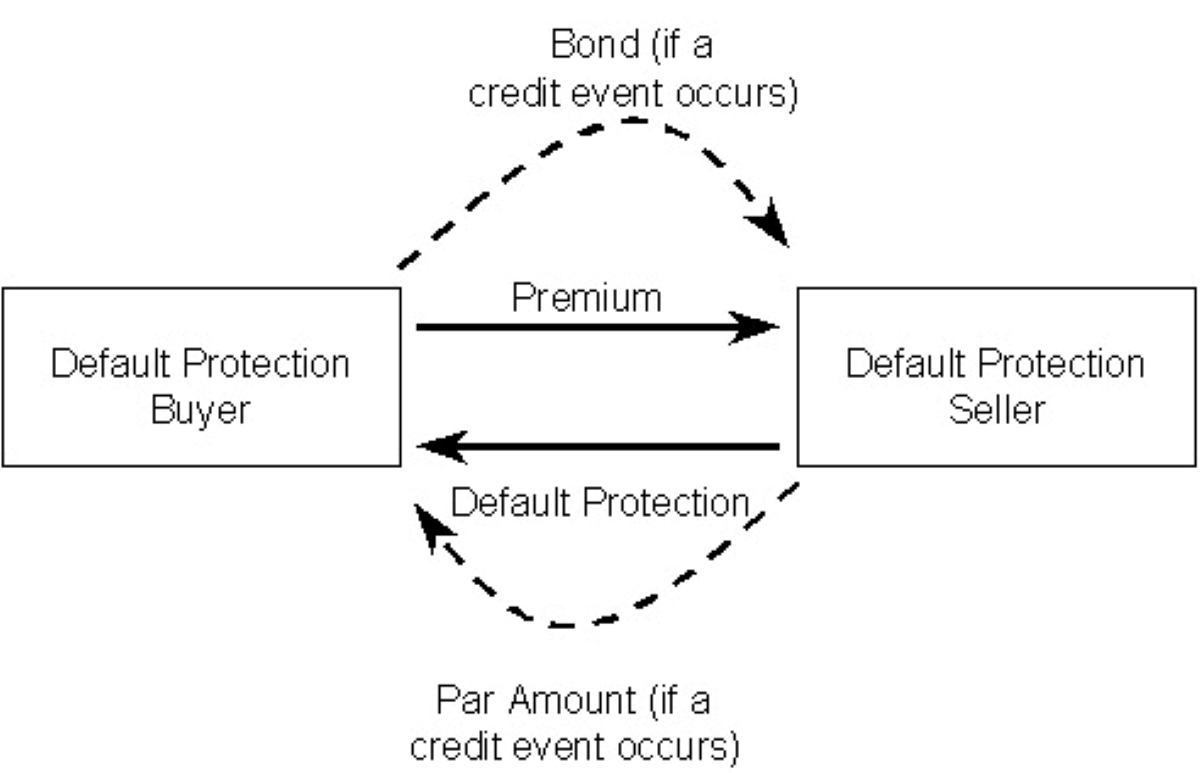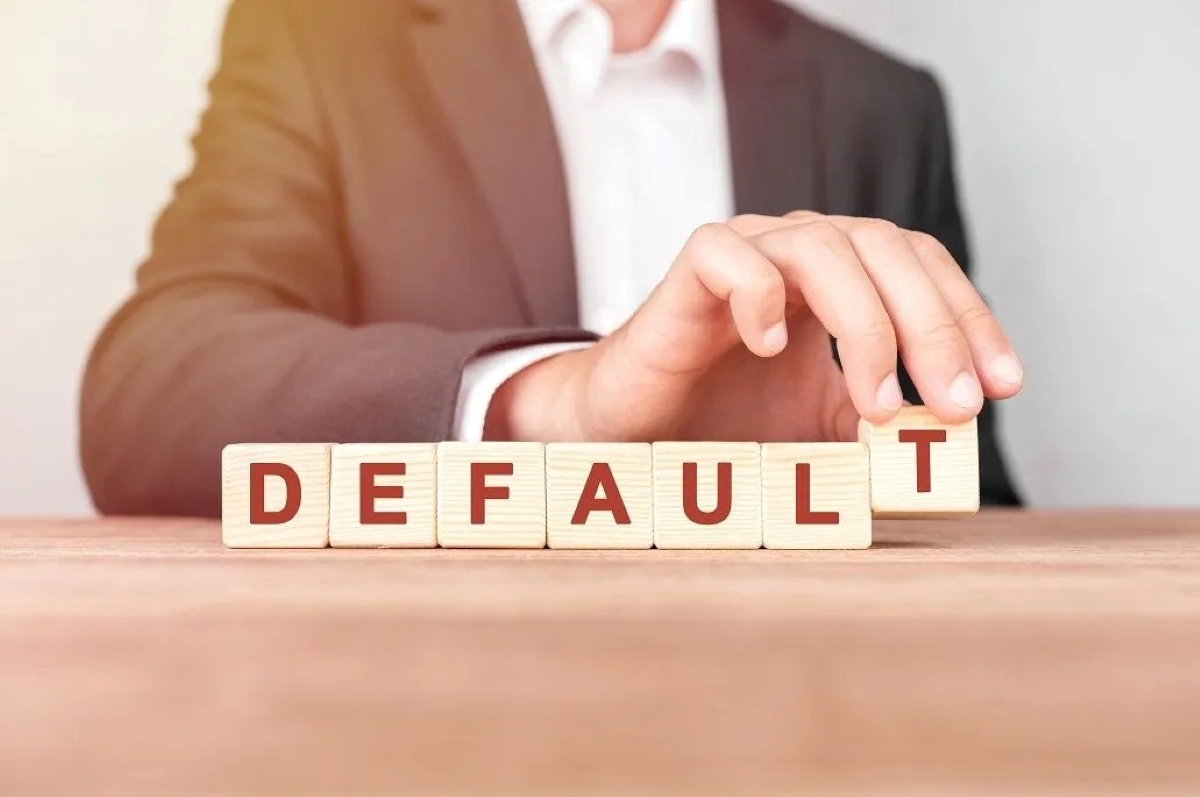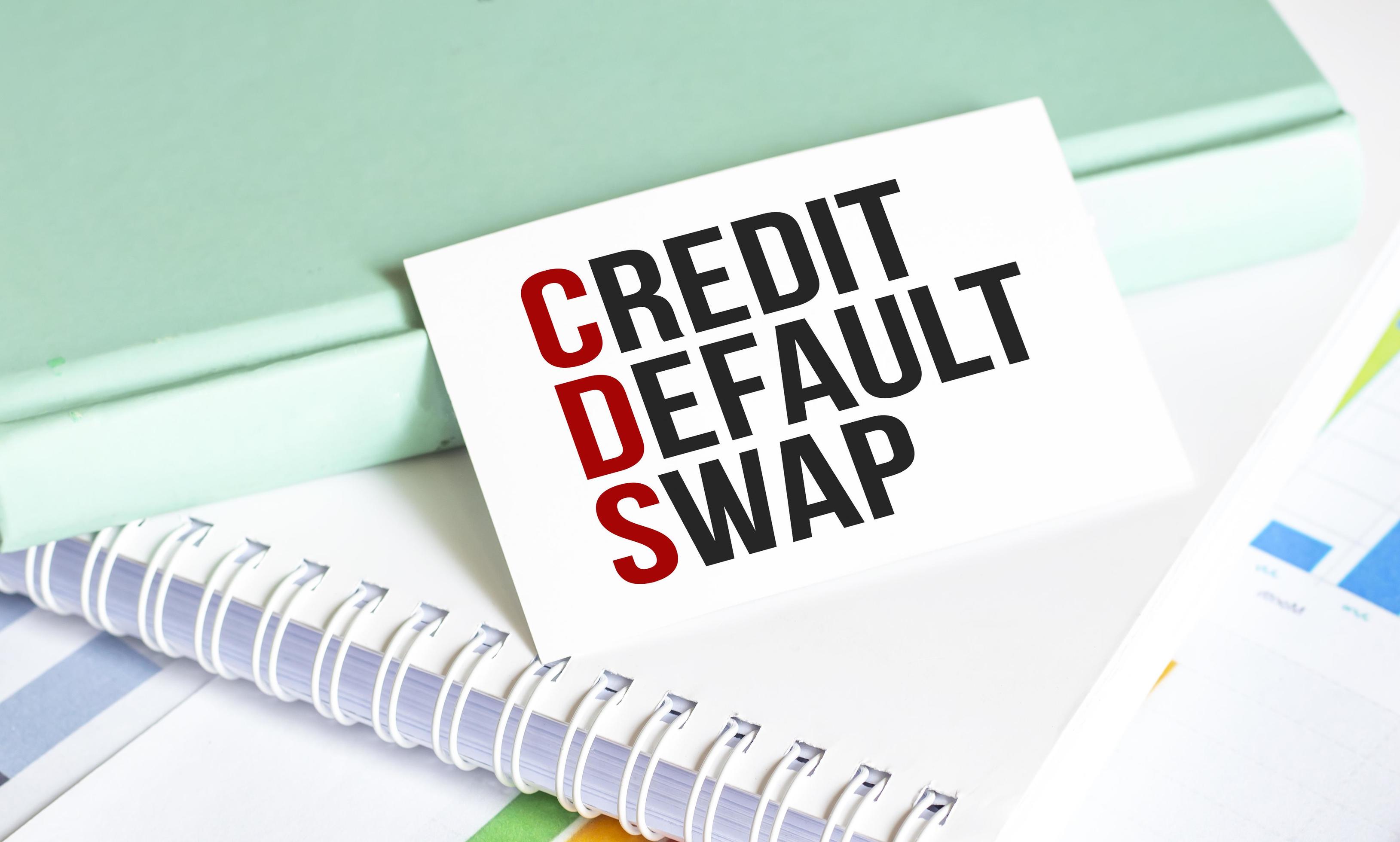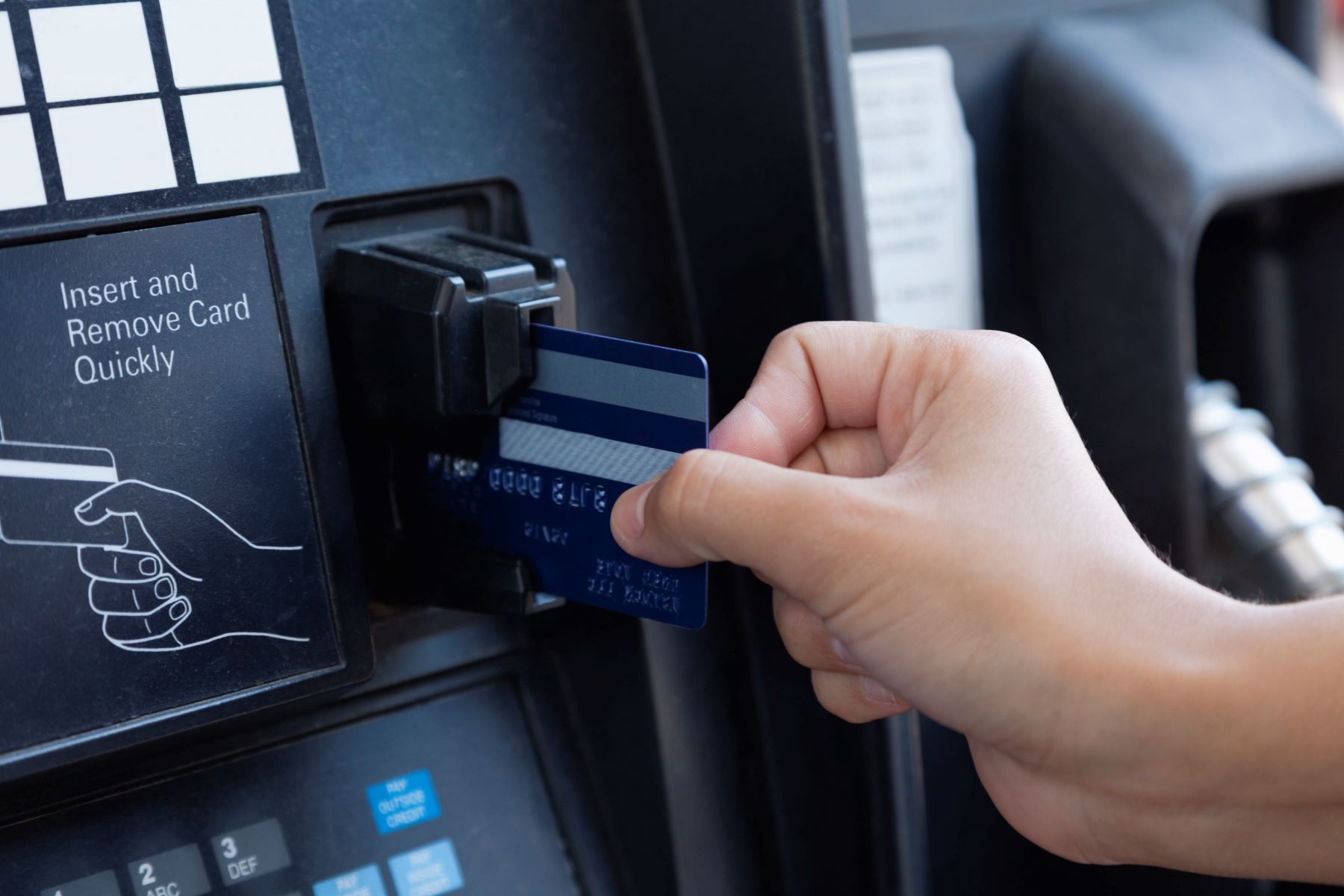

Finance
How To Remove Credit Default
Published: March 4, 2024
Learn effective strategies to remove credit defaults and improve your financial situation. Take control of your finances with our expert tips and advice.
(Many of the links in this article redirect to a specific reviewed product. Your purchase of these products through affiliate links helps to generate commission for LiveWell, at no extra cost. Learn more)
Table of Contents
**
Introduction
**
Dealing with a credit default can be a daunting and stressful experience for individuals striving to maintain a healthy financial profile. A credit default occurs when a borrower fails to fulfill their debt obligations, leading to negative implications on their credit report and overall financial standing. However, it's essential to understand that there are actionable steps one can take to address and remove credit defaults, ultimately paving the way for a brighter financial future.
Navigating the process of removing a credit default requires a comprehensive understanding of credit reports, dispute resolution, negotiation tactics, and potential professional assistance. By delving into these aspects, individuals can equip themselves with the knowledge and strategies needed to effectively address and rectify credit defaults, thereby regaining control over their financial well-being.
Throughout this guide, we will explore the intricate facets of credit defaults and provide actionable insights into the steps individuals can take to remove them from their credit reports. From understanding the nature of credit defaults to disputing errors, negotiating with creditors, and seeking professional guidance, this comprehensive resource aims to empower individuals with the tools and knowledge necessary to navigate the complexities of credit defaults. By following the guidance outlined in this article, individuals can embark on a journey towards financial recovery and stability, free from the burdens of credit defaults.
**
Understanding Credit Defaults
**
Before delving into the process of removing credit defaults, it is crucial to grasp the fundamental concept of what a credit default entails. A credit default occurs when a borrower fails to meet their repayment obligations on a loan or credit agreement. This failure to fulfill financial commitments can lead to adverse consequences, including the placement of a default notation on the individual’s credit report.
When a credit default is recorded on a credit report, it signals to potential lenders and creditors that the individual has a history of failing to meet their financial obligations. As a result, this can significantly impact the individual’s creditworthiness and their ability to secure future loans, credit cards, or other forms of credit. Additionally, credit defaults can lead to increased difficulty in obtaining favorable interest rates and favorable terms on new credit applications.
It is important to note that credit defaults can stem from various sources, including unpaid debts on credit cards, personal loans, mortgages, or other forms of credit. Regardless of the source, the presence of a credit default on a credit report can have far-reaching implications for an individual’s financial health and stability.
Understanding the ramifications of credit defaults is essential for individuals seeking to address and remove these negative marks from their credit reports. By gaining insights into the impact of credit defaults and the subsequent steps required to mitigate their effects, individuals can proactively take control of their financial standing and work towards restoring their creditworthiness.
**
Checking Your Credit Report
**
Before embarking on the journey to remove a credit default, it is imperative to obtain a comprehensive understanding of one’s current credit standing. This involves obtaining a copy of your credit report from major credit bureaus such as Equifax, Experian, or TransUnion. By accessing your credit report, you can gain valuable insights into the specific details of the credit default, including the date of the default, the amount owed, and the creditor involved.
Reviewing your credit report also enables you to identify any potential errors or inaccuracies that may have contributed to the presence of the credit default. It is not uncommon for credit reports to contain mistakes, and these errors can have a detrimental impact on an individual’s creditworthiness. By meticulously examining your credit report, you can pinpoint any discrepancies and take the necessary steps to address them, thereby improving the overall accuracy of your credit profile.
Furthermore, regularly checking your credit report allows you to monitor your financial progress and track any changes in your credit status. This proactive approach empowers individuals to stay informed about their credit standing and address any negative marks, such as credit defaults, in a timely manner.
It is important to note that under the Fair Credit Reporting Act (FCRA), individuals are entitled to receive a free copy of their credit report from each of the major credit bureaus once every 12 months. Taking advantage of this opportunity to access your credit reports can provide valuable insights into your financial standing and serve as the initial step towards addressing and removing credit defaults.
**
Disputing Errors on Your Credit Report
**
Upon reviewing your credit report, if you identify any inaccuracies or errors that may have contributed to the presence of a credit default, it is crucial to take proactive measures to dispute and rectify these discrepancies. The process of disputing errors on your credit report involves notifying the credit bureau about the inaccuracies and providing supporting documentation to substantiate your claim.
Initiating a dispute can typically be done online, by mail, or over the phone, depending on the preference of the individual. When submitting a dispute, it is essential to clearly articulate the specific errors identified and provide any relevant evidence that supports your position. This may include payment records, correspondence with creditors, or any other documentation that validates your claim.
Upon receiving a dispute, the credit bureau is obligated to conduct a thorough investigation into the matter within a reasonable timeframe, usually 30 days. During this investigation, the credit bureau will communicate with the relevant creditor to verify the accuracy of the disputed information. If the creditor is unable to substantiate the information, the credit bureau is required to rectify the error and update your credit report accordingly.
Successfully disputing errors on your credit report can lead to the removal of negative marks, such as credit defaults, thereby improving your overall creditworthiness. By diligently pursuing the correction of any inaccuracies, individuals can take proactive steps towards restoring the integrity and accuracy of their credit profiles.
**
Negotiating with Creditors
**
When facing a credit default, engaging in negotiations with the creditors involved can present a viable opportunity to address and potentially resolve the outstanding debt. It is important to approach these negotiations with a proactive and constructive mindset, aiming to reach mutually beneficial solutions that can lead to the removal or amendment of the credit default on your credit report.
Prior to initiating negotiations, it is advisable to thoroughly assess your financial situation and determine a realistic repayment plan that aligns with your current capabilities. By demonstrating a genuine willingness to address the outstanding debt, you can establish a foundation for productive discussions with your creditors.
During negotiations, it is essential to maintain open and transparent communication with your creditors, clearly articulating your willingness to resolve the debt while seeking feasible terms that accommodate your financial circumstances. This may involve proposing a structured repayment plan, requesting a settlement offer, or exploring options for debt restructuring.
Furthermore, it is crucial to obtain any negotiated agreements in writing to ensure clarity and avoid potential misunderstandings in the future. Once an agreement has been reached, it is imperative to adhere to the terms diligently, as fulfilling the negotiated arrangements can lead to the removal or update of the credit default on your credit report.
Successfully navigating negotiations with creditors can result in the mitigation or elimination of credit defaults, thereby positively impacting your credit standing and financial outlook. By approaching these discussions with a proactive and cooperative attitude, individuals can take meaningful steps towards resolving outstanding debts and restoring their creditworthiness.
**
Seeking Professional Help
**
For individuals facing complex credit default issues or encountering challenges in navigating the process of removal, seeking professional assistance from credit repair agencies or legal professionals specializing in credit matters can offer valuable support and expertise.
Credit repair agencies are equipped with the knowledge and resources to assist individuals in addressing credit defaults and improving their overall credit profiles. These agencies can provide personalized guidance on disputing errors, negotiating with creditors, and developing effective strategies to remove negative marks from credit reports.
When considering the engagement of a credit repair agency, it is essential to conduct thorough research and select a reputable and accredited organization with a track record of success in assisting clients with credit-related challenges. By partnering with a credible credit repair agency, individuals can benefit from professional insights and tailored solutions to address credit defaults effectively.
Alternatively, legal professionals specializing in consumer rights and credit laws can offer valuable assistance in navigating the complexities of credit default removal. These professionals can provide legal expertise, represent individuals in disputes with creditors or credit bureaus, and offer strategic counsel on the most effective approaches to rectify credit defaults.
It is important to approach the engagement of professional help with careful consideration and due diligence, ensuring that the chosen professionals possess the requisite expertise and ethical standards to effectively advocate for your credit repair needs.
By seeking professional assistance, individuals can access specialized support and guidance, enhancing their efforts to remove credit defaults and regain control over their financial well-being.
**
Conclusion
**
Addressing and removing credit defaults is a pivotal endeavor for individuals seeking to regain financial stability and enhance their creditworthiness. By understanding the nature of credit defaults, diligently reviewing credit reports, disputing errors, engaging in negotiations with creditors, and seeking professional assistance when necessary, individuals can embark on a proactive journey towards credit repair and restoration.
It is essential to approach the process with patience, determination, and a commitment to financial responsibility. Regularly monitoring your credit report, addressing any discrepancies, and actively engaging with creditors can yield positive outcomes in the pursuit of credit default removal.
Furthermore, seeking professional help from reputable credit repair agencies or legal professionals can provide invaluable support and expertise, enhancing the efficacy of credit repair efforts.
Ultimately, the journey to remove credit defaults is a transformative process that empowers individuals to take control of their financial destinies, overcome past challenges, and pave the way for a brighter financial future. By implementing the strategies and insights outlined in this guide, individuals can navigate the complexities of credit default removal with confidence and determination, ultimately reclaiming their financial well-being and positioning themselves for long-term success.














